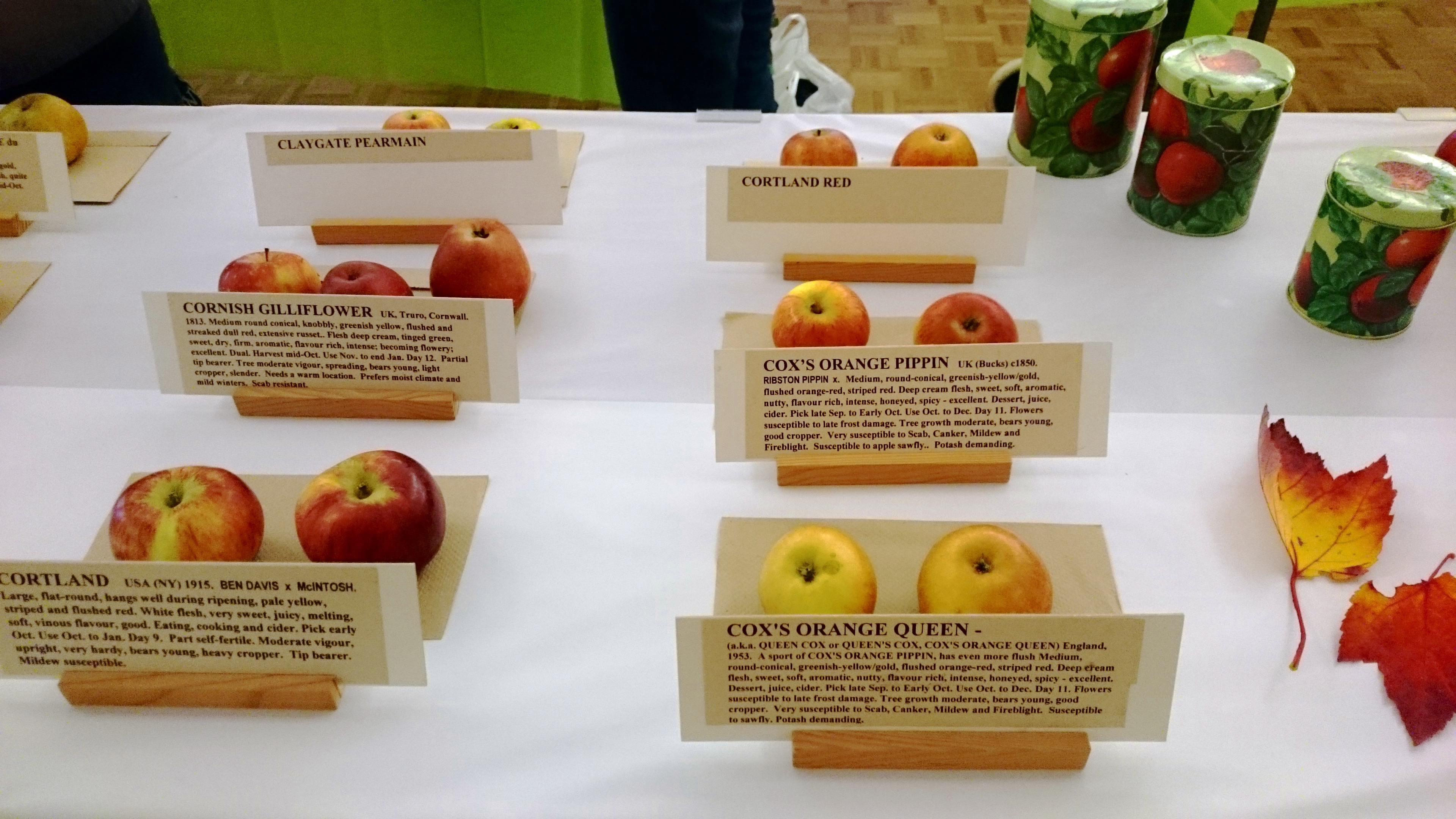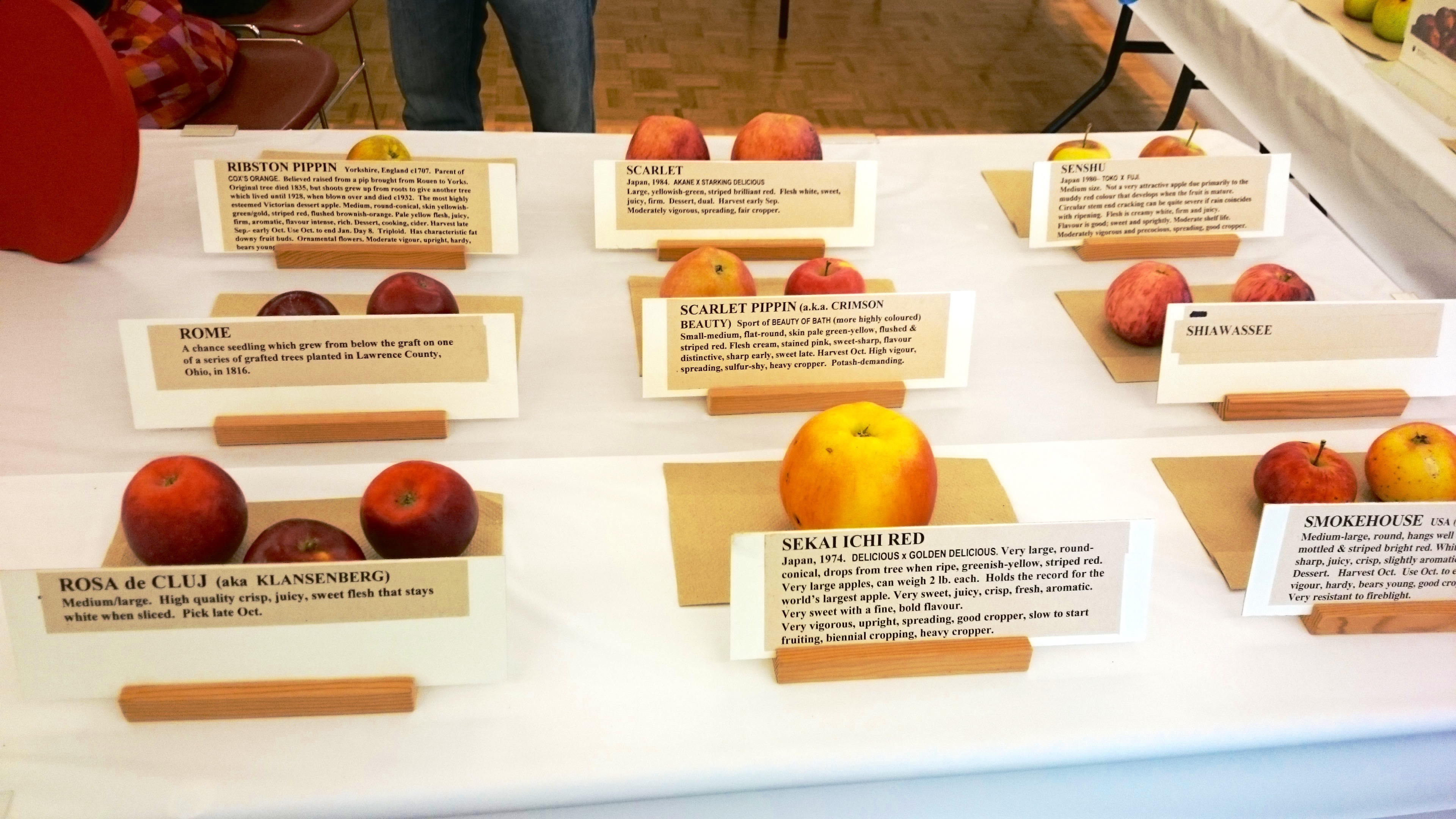Project progress: Part two
What?
Weekly objectives + achievements:
This week I went to the Apple Festival at the UBC Farm to seek the advice of experts on identifying the apples. As we mentioned in our last post, we were hoping to identify the heritage apple varieties we collected from the Gambier Island Sea Ranch orchard. I brought 6 apples to the festival for identification; unfortunately, some of the other apple samples were in poor condition and had to be composted due to the time since collection or possibly due to rough handling. Representatives from the BC Fruit Testers Association positively identified 3 varieties: Golden Russet, Winter Banana, and Golden Delicious. I was told that the remaining 3 apples were likely from apple trees bearing a cross between two or more varieties, which will make it difficult (if not impossible) to identify them. Additionally, I was told that because the heritage apple trees on the island were not properly cared for, there would be underdevelopment of characteristic features of the apples which in turn would make it even more difficult to identify them.
One of our group members also contacted our community partner this week to update them of our progress and to send our proposal report for review and/or feedback. She also inquired about the level of interest from the community in participating in the oral histories component of our project. At this point it seems that no one has responded to her request for participation – and she has told us that she will try contacting individuals directly to ask if they would like to participate.

Identifying Apples at UBC Apple Festival, October 2015.
So what?
Because we had initially started out with 10 apple samples and only 3 were positively identified at the UBC Apple Festival, I felt devastated because this identification process seems so crucial for our project. In reflecting on this experience, I realized that if we had taken a more active approach to getting the apples identified earlier, perhaps we would have had more success since we wouldn’t have lost samples due to rot. However, given the feedback from the apple experts at the festival, it would have been unlikely to determine the lineage of the other apples by visual inspection alone (due to the neglect of the trees and the cross-varieties). It made me think of Dan Barber in the This American Life (TAL) podcast Act 3 about producing ethical fois gras, when he tried to kickstart his project, he failed several times due to unforeseen conditions before he saw a little bit of progress (1). Like Dan, we need to learn to expect the unexpected, and try new approaches to achieve success in our project.
While we have had some setbacks, given the challenges of identifying heritage fruit varieties, I think identifying 3 out of 10 apples is a huge achievement for our project. It was also slightly disappointing to find out from our community partner that no one has expressed an interest in participating in the interviews for the history component of the project yet.

Identifying Apples at UBC Apple Festival, October 2015.
Now what?
As a whole, our challenges this week relate back to the TAL Act 3 story on producing ethical fois gras – in that there are so many components of this project that are truly out of our control. I think this is important to keep in mind going forward. It also made me think of the guiding principles of Asset-Based Community Development and the social change model of leadership development (2, 3); we are not the sole leaders of this project, we are collaborators and we want to work with the community in fulfilling their goals. Keeping this in mind, while we have had success in some areas of our project, mainly apple identification, we may need to revisit the oral histories part of our project if this isn’t something the community is going to actively participate in. This is the ‘scope change’ we have been told was coming, it may be that we need to reevaluate goals or maybe we just need to take a new approach to get the community interested in our project – we definitely need to be flexible and keep an open mind in the coming weeks!
Upcoming objectives + strategies:
So far, we attempted to have our apple varieties identified by the experts at the UBC Apple Festival. Due to the feedback we received (and the loss of some of our apples), we need to reevaluate whether it is worth meeting with the pomologist for a second opinion and/or further identifications.
At this point, our next step of action is to start research into the culinary uses of these specific varieties we have identified, as well as some general history of these apple varieties. Likely we will find this information by searching for reliable sources on the internet or in the library. Additionally, while at the Apple Festival, I learned that the BC Fruit Testers Association (BCFTA) is a potential source of valuable information regarding heritage fruit trees. Perhaps this will be useful for us in our research and if not, possibly for the LFS 350 group that will continue with this project in term 2 (their portion of the project is related to the rejuvenation of the trees and expansion of the orchard).
As for the oral histories component, our community partner has notified us that she will be directly contacting individuals that she thinks may wish to participate in our project. So, for the time being we will wait for a response. Upon discussing concerns with our course instructor, we may need to consult with our community partner and discuss ‘scope change’, by possibly including more general history of the heritage apples and their historic uses.
– Cheryl + Group 3
References:
- Glass, I. (2011, December 2). Poultry Slam 2011: Act 3: Latin Liver. This American Life. Podcast retrieved from http://www.thisamericanlife.org/radio-archives/episode/452/poultry-slam-2011?act=3#play
- Mathie, A., & Cunningham, G. (2003). From clients to citizens: Asset-based Community Development as a strategy for community-driven development. Development in Practice, 13(5), 474–486.
- Komives, S. R., & Wagner, W. (2009). Leadership for a better world: understanding the social change model of leadership development (1st ed). San Francisco, Calif: Jossey-Bass.
